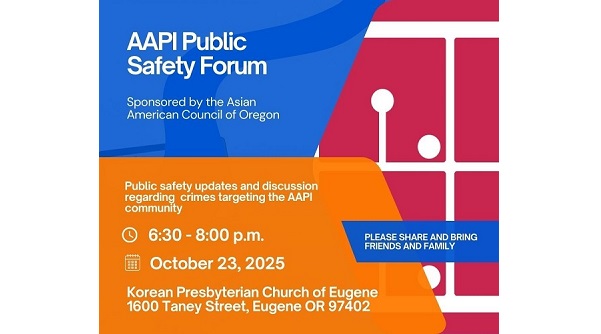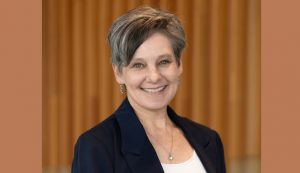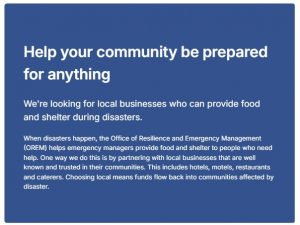Police Commission addresses resignations; former chair announces public safety forum Oct. 23
7 min read
Presenter: The Eugene Police Commission presented its annual report and work plan Oct. 13. One city councilor asked what the Commission had learned after two resignations, including the resignation of former Commission Chair Jensina Hawkins. Councilor Matt Keating:
Councilor Matt Keating: Thank you, Chair Emeilia, and Sergeant, Chief, for the work, and to all your commission members and to our council liaisons. And I also want to thank the previous chair for her volunteerism and for Jensina’s work and dedication as well.
[00:00:36] I have a couple of questions about internal fixes or how the Commission has looked internally to address maybe some of the concerns that came up from the previous chair’s exit. I might want to start there even, and so not to put anyone in an uncomfortable place, but what have you learned from that moment in the Commission’s history, and how has that shaped your work moving forward?
[00:01:02] Emeilia Foulkes (Police Commission, chair): Can I ask for clarification?
[00:01:03] Councilor Matt Keating: Yeah, I’m referencing Chair Jensina Hawkins’s resignation, and there were significant allegations about another member of the board, either bullying or harassing or creating arguably an unsafe workplace.
[00:01:17] And so not to get into potential legal matters, but has the Commission addressed the matter and is the Commission taking any actionable steps to look inward and to apply some best practices? What has the Commission or what have you, as chair of the Commission, learned from that experience?
[00:01:34] Presenter: Police Commission Chair Emeilia Foulkes:
[00:01:37] Emeilia Foulkes (Police Commission, chair): Great question. So, personally, I learned that communication is key. First of all, communication is the key. And within our commission, we have a lot of different and strong, sometimes varying and differing opinions.
[00:01:52] One thing I learned is that giving the opportunity to have conversations with individuals where there is cause for concern, having those honest conversations and letting it be known what’s going on.
[00:02:04] I can personally say it seemed like those conversations didn’t entirely happen and not to put anyone in any position, but the individual that you may be referring to wasn’t completely aware of what was happening or maybe the harm that they were causing.
[00:02:20] And I did have a conversation with them and they took that as a moment of learning and understanding that, ‘Oh gosh, okay, maybe we don’t say or do these things.’ And so, having those conversations as they come up and within our commission as a whole. So if there are issues or if there are problems, we talk about that as a commission as a whole, if there are issues.
[00:02:39] Based on my conversation specifically, again, it was a moment of, there needed to be more conversation, more communication. That person didn’t know the harm that they were doing. And so I was able to provide kind of a brief layout of how that type of harm was being caused.
[00:02:58] I struggle with calling things out as they are because I hate confrontation. I’m terrified of it. So I’m working personally on trying to call out microaggressions and those types of things as they come up. And I don’t always see them, but I’m trying to be more aware of them.
[00:03:13] So moving forward, it is something that I want to be aware of and let it be known that if there is cause for concern currently, If there are any safety concerns, any concerns within commissioners individually or as a whole that we have those hard conversations, that we talk about that as a commission or come to me personally and we can talk about that and come up with a game plan, a safety plan, whatever that might be, and try to move forward as a commission.
[00:03:38] What I can say is I think that the differing opinions are really important to have in our commission. There was so much learned from the July 10 meeting, I will say that, that I learned.
[00:03:50] A lot’s going on in our world, and people are scared, people are angry, and as they should be. So my goal is, I really want to make it a safe space for everybody. And I also want to give everybody the opportunity to learn from their mistakes and learn how to communicate with one another and move forward collectively as a group.
[00:04:15] Councilor Matt Keating: A remarkable answer. Thank you, Chair. I appreciate your candor and your leadership. Chief, did you want to add to that?
[00:04:22] Presenter: Police Chief Chris Skinner:
[00:04:24] Chris Skinner (Eugene Police Department, chief): Yeah, Councilor Keating, I would just add that from a process perspective, I think what we’ve identified through our experience in the Police Commission is a vulnerability amongst all of our boards and commissions.
[00:04:33] When we have conflict between board members, we don’t have a really clean process to go through as to who should be leaning into that. How do we engage some kind of level of investigative look as to what happened and hold people accountable? Because all of us are held to our respectful workplace environment policies, whether you’re a volunteer or staff.
[00:04:54] We’ve got it dialed in when we think about staff in how we do this. It’s been a little bit squishy when it comes to our volunteers. And so we’ve recognized that, especially when it’s not stuff that’s over that’s happening in a meeting, but happening behind the scenes between email, text message, between potentially members of a commission that you don’t necessarily know is happening until it gets to a really critical, critical point.
[00:05:16] So I think what it has come to is, as liaisons with all these commissions, we have to be acutely aware of what’s going on, open those lines of communication, make sure that it’s a safe place for people to report the type of behavior that they’re uncomfortable with.
[00:05:30] And then we have to, as a city, figure out the mechanism by which we’re going to go ahead and investigate those, because in our case, after all, this is your Police Commission. These are your people that you appointed to the Police Commission, and ultimately, you are the governing body that could remove somebody if that were the case.
[00:05:48] But we need to come to you with a robust piece of evidence to suggest that somebody should be removed, and in this particular case we didn’t have that, we didn’t have the mechanism to do that. So we’re thinking about the process by which we go through this so that if you have to contemplate that, you can feel good about the information that you have.
[00:06:05] Presenter: During public comment at the 7:30 meeting later that same day, Jensina Hawkins:
[00:06:11] Jensina Hawkins: I’ll start this evening by addressing the elephant I brought into the room by being here this evening. I am the former most recent chair of the Police Commission, and I heard this evening during the work session that my resignation from the Police Commission was addressed.
[00:06:25] First of all, I want to say that I very much am very, very grateful and so proud of Emeilia Foulkes for stepping up to be the chair. And I really hope that the city of Eugene expresses their thanks to previous Mayor (Lucy) Vinis for finding Emeilia Foulkes and recommending her appointment to the Police Commission. I am encouraged by the changes that have been made and have been addressed at the city level.
[00:06:49] My resignation from the Police Commission was in no way a reflection of my opinion of Eugene Police Department or Chief Skinner, and I want that to be very clear.
[00:06:58] For the remainder of my time, I’m speaking as an Asian American living in the city of Eugene. It has been widely published that there has been a string of burglaries targeting Asian Americans.
[00:07:10] In the past year and a half or so, there’s been 21 burglaries targeting the homes of Asian Americans. If you think about that number in context of Asians making up less than 4% of the demographics here in Eugene, think about it: Do you even know 21 Asians? Do you know 21 homes of Asians? And I would challenge you to consider that, and the sheer enormity of that.
[00:07:36] Presenter: EPD said the Flock cameras were instrumental in helping to identify and apprehend seven persons suspected to be members of the burglary ring. Jensina Hawkins:
[00:07:49] Jensina Hawkins: Eugene Police Department did a fantastic job of arresting seven of them on Thursday evening and putting them in jail. One of them has already bailed out. The others are likely to bail out very soon due to some loopholes in Oregon’s system, and they will be free to continue their reign of terror.
[00:08:07] On Oct. 23, the Asian American Council of Oregon is holding a public safety forum, and our guest panelists will be the chiefs of police of Springfield and Eugene, as well as Lane County District Attorney Christopher Parosa, and a senior prosecutor with the Oregon Department of Justice bias hotline. We encourage all of you to be there.
[00:08:26] In addition, I highly, highly, strongly request that the City Council issue a statement of support in solidarity with your Asian American residents in the city of Eugene.
[00:08:37] Presenter: After two members of the Police Commission resign, the city is asked to consider a process to address conflict on all of its volunteer boards and commissions.
[00:08:48] And Chief Skinner will join other officials Oct. 23 in a second public safety forum to address the ongoing targeting of Asian Americans.




